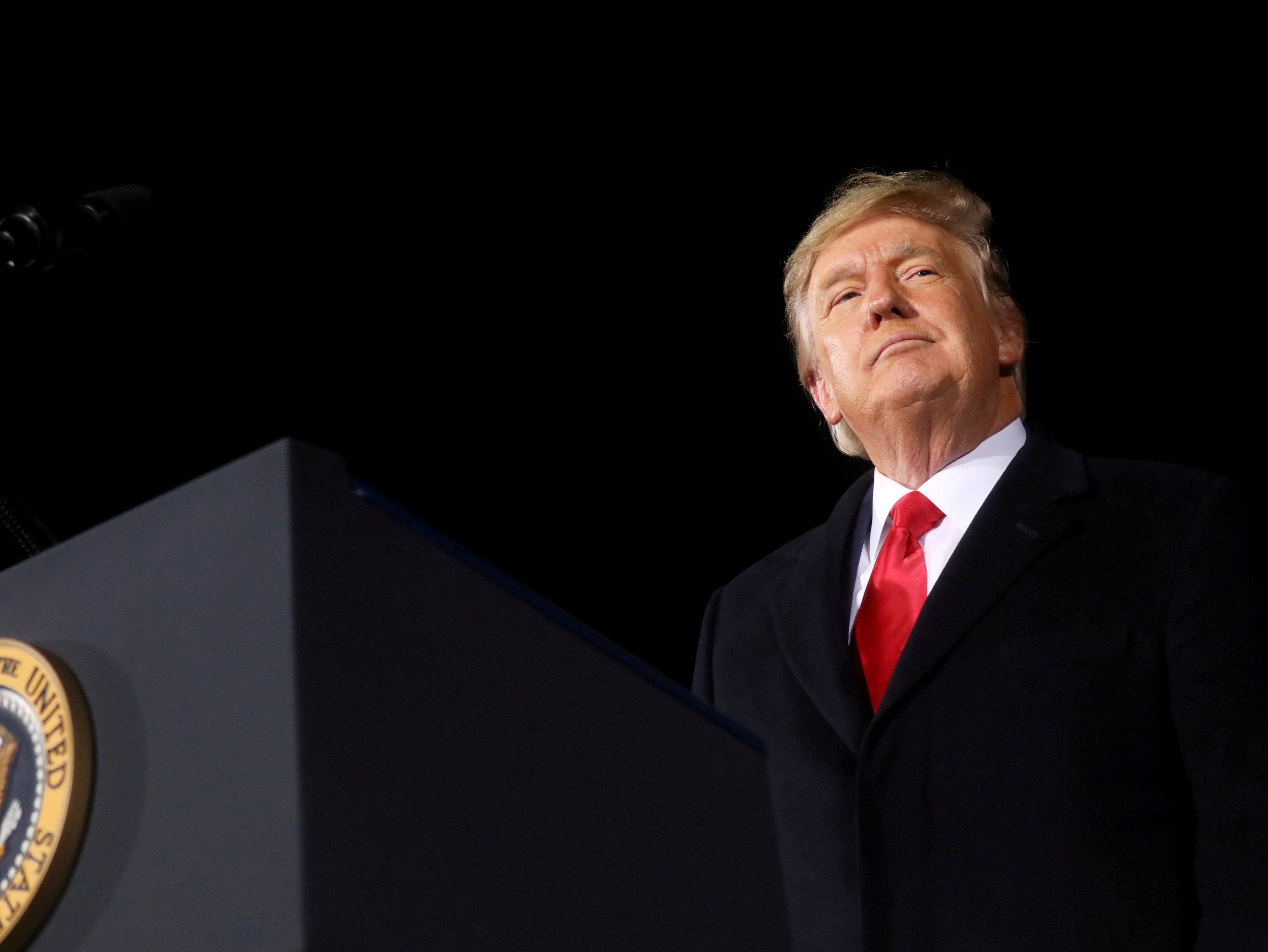Trump won’t be convicted in the Senate impeachment trial — but what about the other lawsuits against him?
Most of the other legal troubles Trump faces as a private citizen are in New York. Unfortunately, it’s hard to see how those charges will stick either


Your support helps us to tell the story
From reproductive rights to climate change to Big Tech, The Independent is on the ground when the story is developing. Whether it's investigating the financials of Elon Musk's pro-Trump PAC or producing our latest documentary, 'The A Word', which shines a light on the American women fighting for reproductive rights, we know how important it is to parse out the facts from the messaging.
At such a critical moment in US history, we need reporters on the ground. Your donation allows us to keep sending journalists to speak to both sides of the story.
The Independent is trusted by Americans across the entire political spectrum. And unlike many other quality news outlets, we choose not to lock Americans out of our reporting and analysis with paywalls. We believe quality journalism should be available to everyone, paid for by those who can afford it.
Your support makes all the difference.Donald J. Trump, the 45th president of the United States of America, went down in history on January 13th as the only president ever to be impeached twice. The Senate trial will begin February 9th and already five of the former president’s attorneys who were lined up to represent him have left his defense team.
As bad as that may sound, it still won’t matter — not even with Democrats holding a technical majority in the Senate thanks to Vice President Kamala Harris’s tie-breaking vote and two Independents that caucus with Democrats. Forty-five Republicans supported a constitutional point of order organized by Sen. Rand Paul (R-KY) against holding the trial, arguing that it’s unconstitutional to impeach and try a former president. With such a slight majority and even with the support of the five Senate Republicans that voted with Democrats to quash Sen. Paul’s order, Democrats are far from the two-thirds — or 67 votes — needed to convict Trump at trial.
In other words, he can run for federal office again. But is there still a chance he could face some kind of legal reckoning? It depends on what happens in the lawsuits filed in state and federal courts. Those are still pending.
On January 25th, the US Supreme Court threw out lawsuits brought by the states of Maryland and the District of Columbia that argued the president violated the Constitution’s emoluments clause when his company accepted payments by foreign and domestic dignitaries. The Supreme Court also ordered lower courts to dismiss the suits looking for Trump’s financial records as moot, since he is no longer president and therefore no longer allegedly profiting from being in office.
As president, Trump was able to claim immunity from criminal prosecution because of a standing Department of Justice memorandum that stipulates sitting presidents cannot be criminally charged. And as a former president, he could be pardoned by the current president, Joe Biden, for any federal crimes he may be accused of. If the federal charges fall through or if Biden were to pardon number 45, that would leave the former president vulnerable to attack in state courts for crimes out of Biden’s constitutional reach.
Trump faces two defamation suits, one in federal court and one in state court. Writer E. Jean Carroll sued Trump in 2019, claiming that he raped her in a dressing room of a Manhattan department store in the 1990s. Trump denied the allegations at the time, saying, “She’s not my type” and stating that she made up the rape to sell her book. In a strange legal maneuver, the DOJ removed the case filed by Carroll from New York state court to federal court, where the government appealed a District Court judge’s decision to let Trump remain the defendant (rather than let the DOJ stand in for him) in Carroll’s defamation case.
Most of the other legal troubles Trump faces as a private citizen are in New York. One criminal case involves alleged campaign finance violations that Manhattan District Attorney Cy Vance is investigating as he continues to try and get a hold of Trump’s tax records. Trump also faces potential civil suits headed up by New York’s attorney general Letitia James that turn on whether his company lied about its assets to get loans and tax breaks for business deals.
It’s unlikely any of the pending criminal or civil charges will stick, state or federal. And there is a simple reason for that: powerful people evade justice all the time. When leaders in other countries get away with crimes and otherwise break laws, we are quick to decry “impunity”. Yet, for some reason in the US it seems much harder for us to form our lips around the word. And yet here we are.
Our laws are not good enough. Trump and the extremist, Confederate flag-waving, monster truck-driving, gun-toting, neo-Nazi domestic terrorists will continue to pose a threat to this country, its people and democracy as long we don’t regulate gun laws, limit corruption in politics, and hold law-breaking, sycophantic officials accountable. Voter suppression, racist militarized police forces, a for-profit criminal justice system, powerful congressional lobbyists, and brazen conflicts of interest that go unchecked, year after year, are just some of the threats our democracy faces.
And it’s not all the right’s fault. Every election, moderate Democrats shush progressives, warning them that “we need to focus on healing” and that focusing too much on overhauling the system will “cost us too big this year". But the healing hasn’t happened. The costs have become too high.
Let’s hope Biden, Harris and the rest of their party are up to this monumental task of overhauling our democracy and quickly – because we are on the brink of losing it to a second Trumpian kakistocracy.
Join our commenting forum
Join thought-provoking conversations, follow other Independent readers and see their replies
Comments